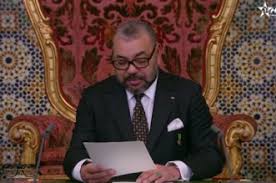Moldova expressed on Tuesday its support for the Morocco-proposed autonomy plan and commended the reforms undertaken in the Kingdom under the leadership of King Mohammed VI.
This came in a Joint Statement adopted following talks in Chisinau between the Moldovan Foreign Minister, Mihai Popșoi, and his Moroccan peer, Nasser Bourita, who is on a working visit to Chisinau.
Moldova expressed its support for the autonomy plan, deeming it is “the most serious and credible basis” for resolving the regional dispute over the Sahara.
Moldova also expressed its “full support for the earnest efforts” made by Morocco to resolve the Sahara issue, and reiterated backing for the UN-led process aimed at achieving a just, pragmatic, sustainable, and mutually acceptable political solution for all parties, the Joint Statement said.
The two Foreign Ministers also agreed on the exclusivity of the UN in the political process and reaffirmed their support for Security Council Resolution 2756 (2024), which emphasized the role and responsibility of the parties in seeking a realistic, pragmatic, and sustainable agreement and a political solution based on compromise.
Morocco and Moldova affirmed their support for the Personal Envoy of the UN Secretary-General for the Sahara and his efforts to advance the political process based on the relevant UN Security Council resolutions and the principles and objectives of the UN Charter, as well as for the UN mission in the Sahara, MINURSO, the Joint Statement said.
On another level, Moldova commended the far-reaching reforms implemented by Morocco over the past two decades under the leadership of King Mohammed VI and welcomed the Kingdom’s renewed efforts to bolster its political, economic, and social development, as evidenced in the New Development Model and the promotion of advanced regionalization.
At the level of Africa, Moldova praised the Atlantic Initiatives launched by the King Mohammed VI in support of the African continent, in particular the African Atlantic States Process; the access of Sahel countries to the Atlantic Ocean; and the Nigeria–Morocco Atlantic African Gas Pipeline Project.
These initiatives aim to make the African Atlantic space a geostrategic framework conducive to intra-African development, while promoting stability and prosperity across the continent, the two sides pointed out in the Joint Statement.
Moldova also commended Morocco’s role as a regional hub for stability and a driver of growth and development in Africa.
The two parties on the other hand emphasized their positive and constructive roles in maintaining stability, security, and peace in their respective regions, and expressed their commitment to the peaceful resolution of conflicts and to the respect for the territorial integrity and sovereignty of States.
At the bilateral level, Moldova and Morocco expressed their shared commitment to strengthening their cooperation across all fields, reiterated their shared will to further enhance political dialogue, and reaffirmed their commitment to increasing economic, trade, and cultural ties between the two nations.
The two officials agreed on holding a business forum to explore partnership opportunities in sectors such as agriculture, fertilizers, energy, industrial subcontracting, digital technologies, and cybersecurity.
They also agreed to explore ways to further develop cooperation between their respective diplomatic academies.
Popșoi and Bourita welcomed the signing of several agreements during this visit and emphasized the importance of strengthening the bilateral legal framework in specific areas of mutual interest.
The agreements signed include the establishment of mechanisms between the two Ministries of Foreign Affairs for political consultations, economic diplomacy, and diplomatic exchanges, as well as mutual visa exemption for holders of diplomatic, service, and special passports.
During the meeting, Nasser Bourita welcomed the official launch of negotiations on Moldova’s accession to the European Union, as well as the reform efforts undertaken by the country in the framework of this process.



